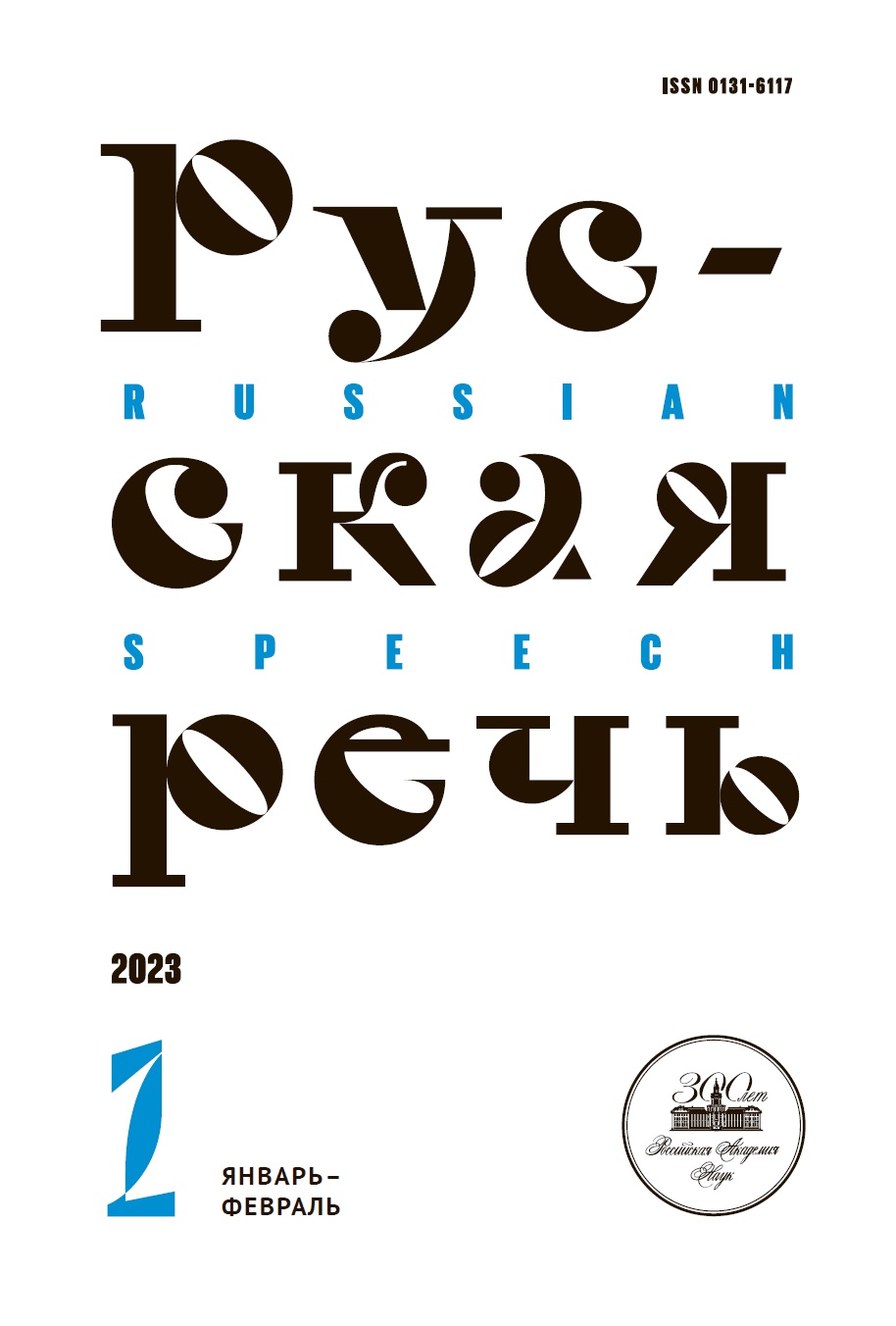Mythopoetic Space of Banya in Poems of B. A. Slutsky and V. S. Vysotsky
- 作者: Aleksandrov I.A.1
-
隶属关系:
- Moscow University for the Humanities
- 期: 编号 1 (2023)
- 页面: 103-113
- 栏目: Articles
- URL: https://freezetech.ru/0131-6117/article/view/652389
- DOI: https://doi.org/10.31857/S013161170024709-8
- ID: 652389
详细
The image of the banya (a Russian steam bath) with its deep mythopoetic roots in the history of Russian literature is embodied in the works of the Soviet literature as well. Thus, the poems “Banya” by B. A. Slutsky and “White Banya” by V. S. Vysotsky create the archetypal images of the bathhouse, which, despite the realities of the Soviet life described in them, manifest their archaic syncretic nature. The plot of the banya visit is represented by talking about the past ‒ the military one in the first case and the labour camp one in the second. The motive of spiritual and physical purification connecting the two texts, accumulates the change of the temporal boundaries of the plot. As a borderline and a sacred space, banya locus seems to take the heroes into the past. It is typical that poets resort to the same dominants of artistic language in order to express such meanings. The poetics of repetitions and homogeneities, with the help of which the orientation towards assimilating oral-colloquial rather than literary-book speech is carried out, immerses the reader in the world of fabulousness and reveals the concept of paradise. At the same time, the poem by V. S. Vysotsky can be regarded as a logical continuation of Slutsky’s poem: the camp past of the lyrical hero depicted in “White Banya” fills the gap in the representation of the picture of that period. Initiating a dialogue with the text of B. A. Slutsky, the poem by V. S. Vysotsky makes the image of the era complete.
全文:
参考
- Высоцкий В. С. Своя колея: песни. Екатеринбург: У-Фактория, 2008. 480 с.
- Пушкин А. С. Руслан и Людмила / Пушкин А. С. Избр. соч. В 2 т. Самара: Самарский дом печати, 1995. Т. 1. 703 с.
- Слуцкий Б. А. Сегодня и вчера. Книга стихотворений. М.: Молодая гвардия, 1963. 184 с.
- Шукшин В. М. Алёша Бесконвойный / Шукшин В. М. Калина красная. Повести и рассказы. М.: Эксмо, 2013. 800 с.
- Климакова Е. В. Мифопоэтические аспекты творчества В. С. Высоцкого: дис. … канд. филол. наук / Красноярск, 2011. 180 с.
- Козлов В. И. Высоцкий – поэт с черного хода. // Prosōdia. 2015. № 3. С. 79–93.
- Смирнов А. А. Великие битвы уголовного мира. История профессиональной преступности Советской России. Книга первая (1917–1940 гг.) [Электронный ресурс]. URL: https://history.wikireading.ru/207212 (дата обращения: 30.06.2022).
- Стеркина Н. И. Вы не были в раю районном? [Электронный ресурс]. URL: https://www.ng.ru/ng_exlibris/2019-06-06/13_984_bania.html (дата обращения: 28.06.2022).
- Ушаков Д. Н. Толковый словарь современного русского языка. М.: Аделант, 2014. 800 с.
- Хазагеров Г. Г. Две черты поэтики Высоцкого // Мир Высоцкого: Исследования и материалы. 1998. Вып. II. С. 82–106. (In Russ.)
- Хализев В. Е. Теория литературы. М.: Высшая школа, 2004. 405 с.









